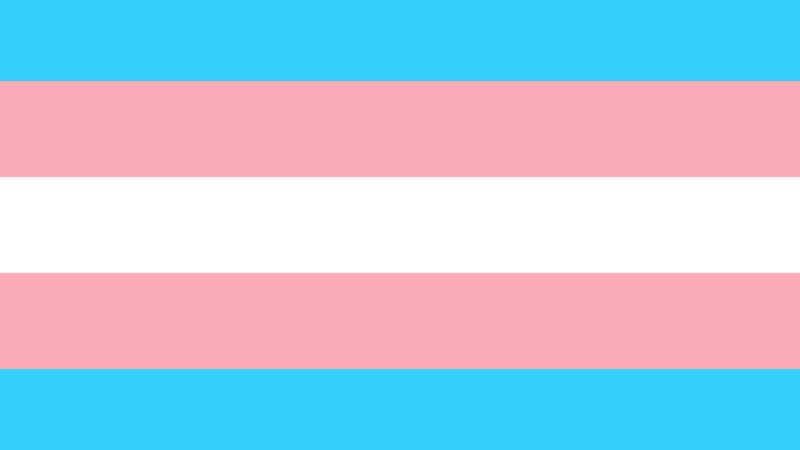Alabama can enforce ban on puberty blockers and hormones for transgender children, court says
MONTGOMERY, Ala. (AP) — A federal appeals court ruled Monday that Alabama can enforce a ban outlawing the use of puberty blockers and hormones to treat transgender children, the second such appellate victory for gender-affirming care restrictions that have been adopted by a growing number of Republican-led states.
A three-judge panel of the 11th U.S. Circuit Court of Appeals vacated a judge’s temporary injunction against enforcing the law. The judge has scheduled trial for April 2 on whether to permanently block the law.
Alabama Attorney General Steve Marshall called the ruling a “significant victory for our country, for children, and for common sense.”
“The Eleventh Circuit reinforced that the State has the authority to safeguard the physical and psychological wellbeing of minors,” Marshall said.
The decision leaves families of transgender children, who had been receiving treatment, scrambling for care. The injunction will remain in place until the court issues the mandate, which could take several days. Once it is officially lifted, the attorney general’s office will be able to enforce the ban, which threatens doctors with prison time.
“We are disappointed in today’s decision,” Jeff Doss, an attorney representing parents of transgender children and others who challenged the Alabama law, said in an emailed statement. “We are carefully considering all available options, including further appellate review. We remain committed to fighting for our clients and will continue to do so.”
In lifting the injunction, the judges wrote that states have “a compelling interest in protecting children from drugs, particularly those for which there is uncertainty regarding benefits, recent surges in use, and irreversible effects.”
Major medical groups, including the American Medical Association and the American Academy of Pediatrics, oppose the bans and experts say treatments are safe if properly administered.
Puberty blockers are fully reversible prescription medication that pause sexual maturation, typically given in injections or skin implants. Hormone treatments can prompt sexual development, including changes in appearance.
Dr. Morissa Ladinsky, a Birmingham pediatrician, said in a statement Monday that she is hopeful “today’s decision is just a temporary setback.”
“As a doctor who has treated hundreds of transgender adolescents, I know firsthand the challenges these young people and their families face and the benefits these treatments provide to youth who need them. This is safe, effective, and established medical care. There is no valid reason to ban this care,” Ladinsky said.
The ruling follows a string of decisions in recent weeks against similar bans. A federal judge in June struck down a similar law in Arkansas, the first state to enact such a ban. At least 20 states enacted laws restricting or banning gender-affirming care for minors.
Opponents of youth transgender medical treatment say there’s no solid proof of purported benefits, cite widely discredited research and say children shouldn’t make life-altering decisions they might regret.
Bans have also been temporarily blocked by federal judges in Florida, Indiana, and Kentucky. A federal appeals court has allowed Tennessee’s ban, which had been blocked by a federal judge, to take effect.
The ruling applies to only the Alabama ban, but comes as most of the state bans are being challenged in court.
Alabama Gov. Kay Ivey signed the Vulnerable Child Compassion and Protection Act into law in 2022, making it a felony punishable by up to 10 years in prison for doctors to treat people under 19 with puberty blockers or hormones to help affirm their gender identity.
Four families with transgender children ranging in ages 12 to 17 challenged the Alabama law as an unconstitutional violation of equal protection and free speech rights, as well as an intrusion into family medical decisions. The U.S. Department of Justice joined their lawsuit, seeking to overturn the law.
U.S. District Judge Liles Burke, who was nominated to the court by President Donald Trump in 2017, ruled when issuing the preliminary injunction that Alabama had produced no credible evidence to show that transitioning medications are “experimental.”
Alabama then appealed to the 11th Circuit.
Burke allowed two other parts of the law to take effect. One bans gender-affirming surgeries for transgender minors, which doctors had testified are not done on minors in Alabama. The other requires counselors and other school officials to tell parents if a minor discloses that they think they are transgender.
More GOP states are poised to enact similar bans on gender-affirming care for minors. Democratic governors in Louisiana and North Carolina have vetoed bans, but both are expected to be overridden by Republican-led legislatures.
Pentagon puts Scouts ‘on notice’ over DEI and girl-centered policies
After threatening to sever ties with the organization formerly known as the Boy Scouts, Defense Secretary Hegseth announced a 6-month reprieve
President Trump bans Anthropic from use in government systems
Trump called the AI lab a "RADICAL LEFT, WOKE COMPANY" in a social media post. The Pentagon also ordered all military contractors to stop doing business with Anthropic.
HUD proposes time limits and work requirements for rental aid
The rule would allow housing agencies and landlords to impose such requirements "to encourage self-sufficiency." Critics say most who can work already do, but their wages are low.
Paramount and Warner Bros’ deal is about merging studios, and a whole lot more
The nearly $111 billion marriage would unite Paramount and Warner film studios, streamers and television properties — including CNN — under the control of the wealthy Ellison family.
A new film follows Paul McCartney’s 2nd act after The Beatles’ breakup
While previous documentaries captured the frenzy of Beatlemania, Man on the Run focuses on McCartney in the years between the band's breakup and John Lennon's death.
An aspiring dancer. A wealthy benefactor. And ‘Dreams’ turned to nightmare
A new psychological drama from Mexican filmmaker Michel Franco centers on the torrid affair between a wealthy San Francisco philanthropist and an undocumented immigrant who aspires to be a dancer.







